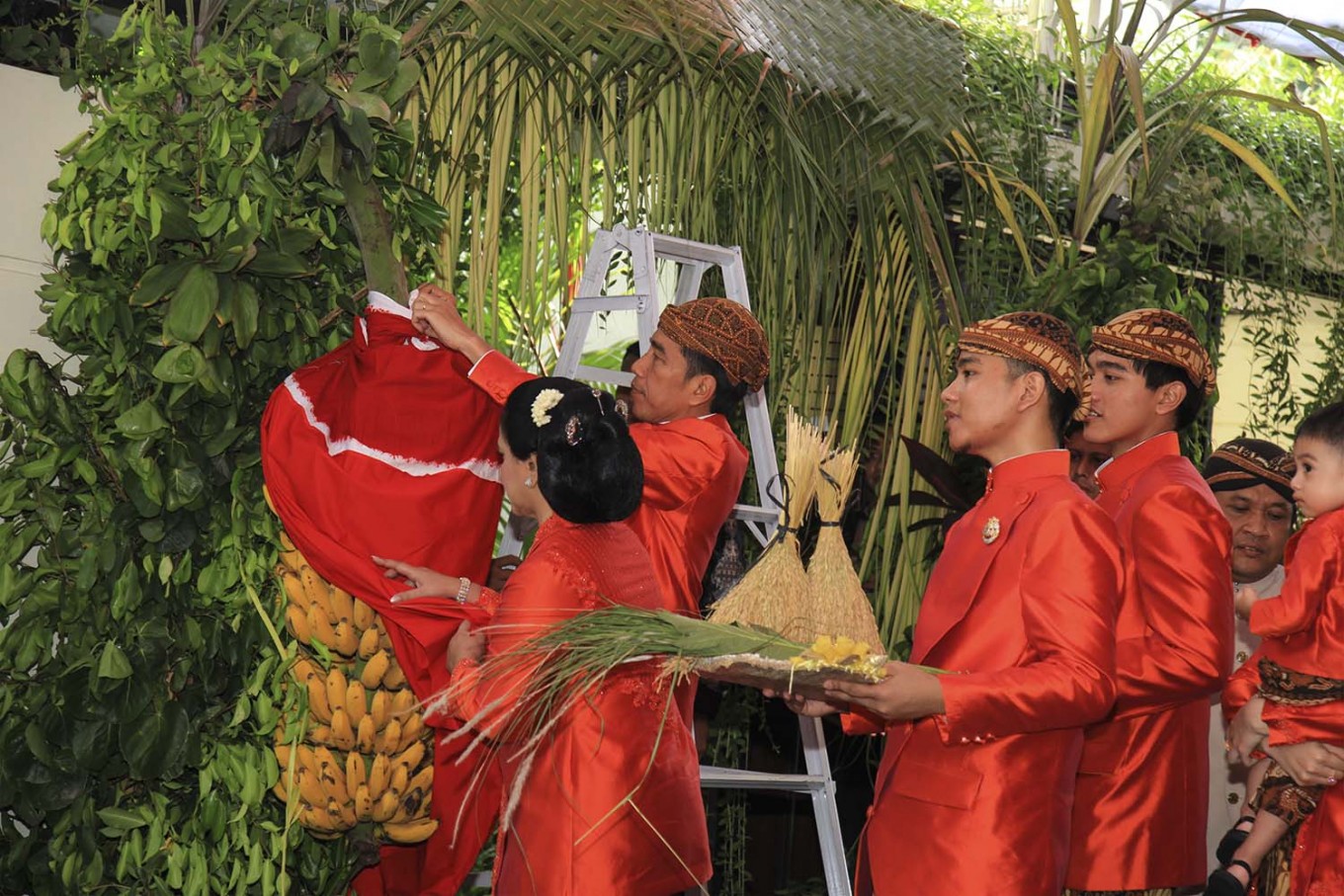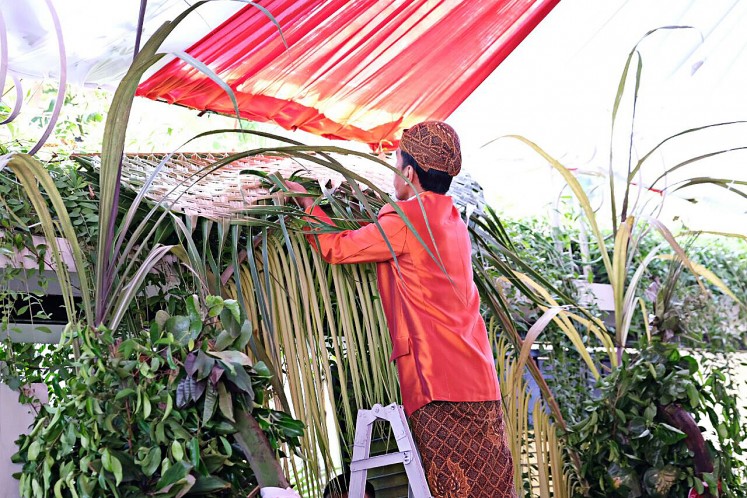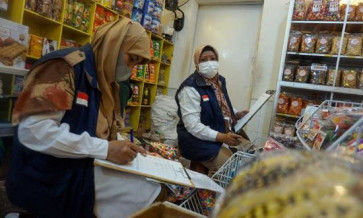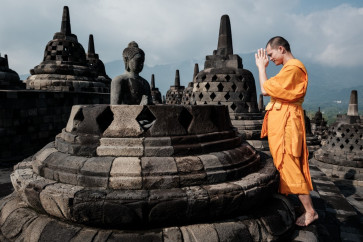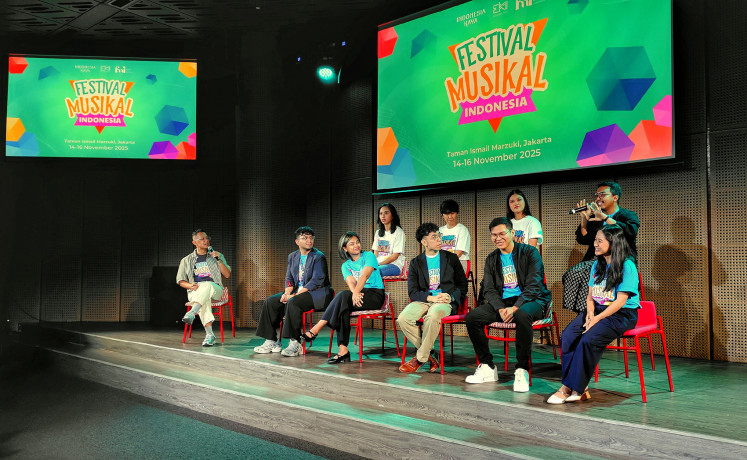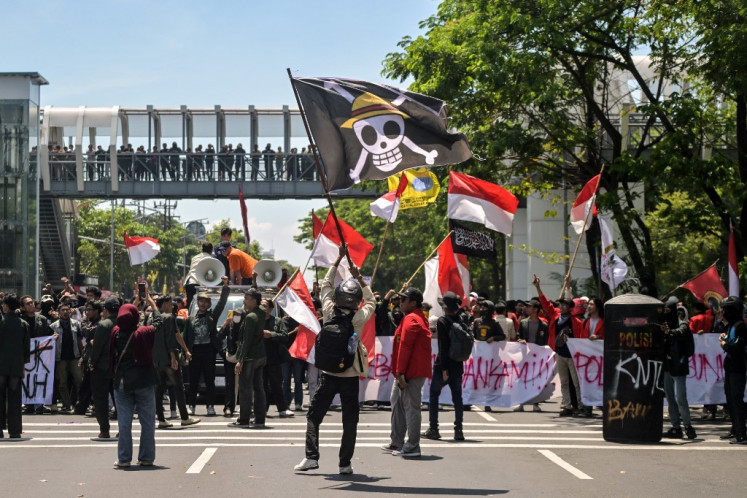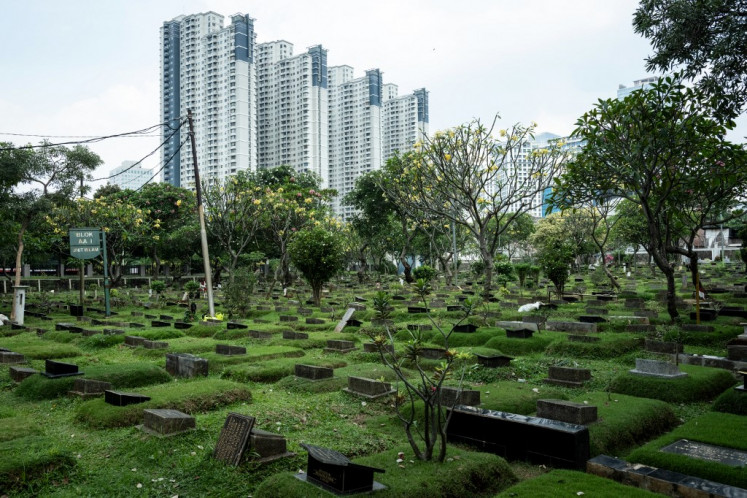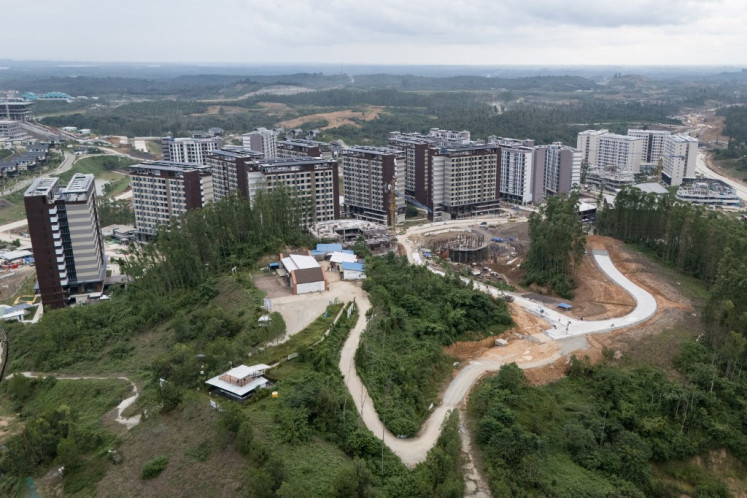Popular Reads
Top Results
Can't find what you're looking for?
View all search resultsPopular Reads
Top Results
Can't find what you're looking for?
View all search resultsGetting to know traditional Javanese rituals in First Daughter's wedding
President Joko "Jokowi" Widodo's daughter Kahiyang Ayu is set to tie the knot with Muhammad Bobby Afif Nasution on Wednesday in Surakarta, Central Java, but a series of traditional Javanese ceremonies has been taking place since Monday.
Change text size
Gift Premium Articles
to Anyone
P
resident Joko "Jokowi" Widodo's daughter Kahiyang Ayu is set to tie the knot with Muhammad Bobby Afif Nasution on Wednesday in Surakarta, Central Java, but a series of traditional Javanese ceremonies has been taking place since Monday.
Speaking to the press on Monday, Jokowi said the upcoming wedding has been more complicated than that of his son Gibran Rakabuming, which took place on June 11, 2015.
"Yes, it's a little bit more difficult, but basically the preparation has been the same," Jokowi said, as quoted by kompas.com.
The weddings of both of Jokowi's children have featured traditional Javanese cultural ceremonies, with several stages taking place over several days, including wilujeng kenduri, siraman, midodareni, akad (wedding ceremony) and the reception.
"Based on Javanese adat [way of life], the woman is called Mantu, and the man is called Ngunduh Mantu," Jokowi explained of the bride and groom's status at the marriage event.
According to Javanese tradition, the ngunduh mantu procession is not mandatory. However, some parents still want to do it as a form of thanksgiving for the marriage of their beloved son.
Read also: Carriage escort to grace Kahiyang-Bobby wedding
With each event holding its own meaning and philosophy, Monday began with wilujeng kenduri, which consisted of joint prayers to hope for a smooth procession. Jokowi said the family had also invited the neighbors to join in the prayers.
During the wilujeng kenduri, traditional Javanese food is usually served in the form of tumpeng (rice-cone), which is decorated with various ubo rampe (side dishes).
Susanto, a Javanese cultural and historical expert from Sebelas Maret University, explained that wilujeng kenduri is an early stage in the marriage, it is a ritual to ask for blessings from god.
"This process toward marriage is a very important stage because marriage itself is a bond to build the future. That is why the wilujeng kenduri procession is very important," Susanto said.
Susanto further explained that the tumpeng also had its own meaning within the ritual, as it symbolizes a mountain and depicted the universe.
"On a mountain there is water, animals and plants that are symbols of the universe. Meanwhile, the universe is the place where life takes place," Susanto said.
Read also: First Daughter showcases beauty of Indonesia in pre-wedding photos
The accompanying ubo rampe, or side dishes, served with the tumpeng also act as a symbol to repel danger.
The ceremony on Tuesday is followed by siraman, or splashing of water, which would be carried out separately by the bride and groom in their respective places.
For the bride, the siraman would be followed by the sadeyan dawet ritual and midoderani.
"Siraman is actually a way for the child to bid farewell to both parents. This suggests the child is no longer 'showered' or bathed by both parents," Susanto said.
Susanto further added that the meaning of sadeyan dawet in the procession series symbolizes that the child is ready to navigate life and earn a living.
Before the bride's siraman ritual, there will also be an installation of bleketepe, or coconut leaves that are still young and weaved into an average size of 50 cm x 200 cm. The ritual would be conducted by the father of the bride, Jokowi himself.
President Joko 'Jokowi' Widodo hangs bleketepe (row of plaited coconut leaves) in front of his private residence on Jl. Kutai Utara, Sumber, Surakarta, Central Java, on Nov. 7, 2017. (JP/Ganug Nugroho Adi)"The meaning of this bleketepe installation is like a parent's invitation to purify the heart," said Susanto. "The ceremonies and rituals are important especially since the time of the Mataram kingdom." (liz/kes)

